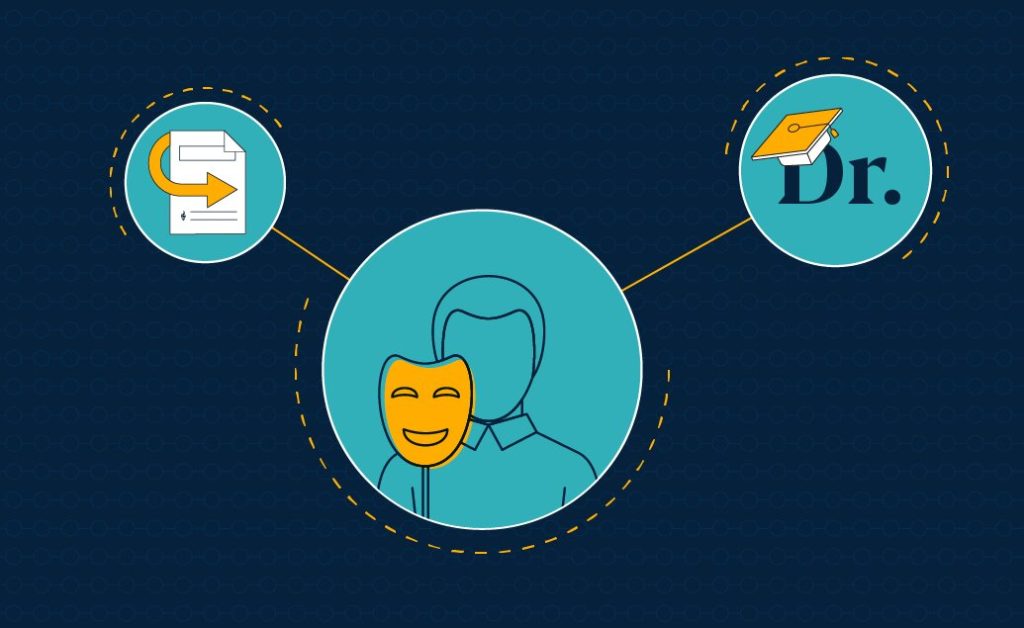
How can a person who consistently burns pizza in the oven and can’t remember to finish the laundry be a doctoral candidate? How can someone who’s been accused more than once of writing too conversationally produce doctoral-level work? Why are my classmates’ discussion posts so much better than mine? Why does everyone else get this assignment but me?
More than once in my doctoral journey, I’ve been a victim of imposter syndrome. Coined in 1978 by psychologists Suzanne Imes and Pauline Rose Clance, imposter syndrome is a feeling of self-doubt in which you feel you are fooling people into thinking you are something you are not. For me, imposter syndrome hit the hardest when I was going through the IRB process. I felt like I didn’t belong in a doctoral program, like I was a fraud and there was no way I would ever be capable of creating the kind of work that would be worthy of an Ed.D.
I hit a breaking point with my imposter syndrome when I realized I had come too far in my doctoral program to throw in the towel. I knew I needed to refocus and change my way of thinking to prevent imposter syndrome from getting in the way of my goals.
For me, the first step was owning my feelings and having a heart-to-heart with my dissertation chair. I’m lucky enough to have a chair who schedules a weekly class Zoom session where everyone gets together to shares their successes and concerns. It allows us to gets support from both our peers and our chair. The rapport I have with my chair made me feel comfortable enough to have an honest conversation about my reservations.
Next, I had to accept that failure was going to be part of the journey. There will be courses you might have to repeat and assignments that might get returned. I worked at developing a healthy response to these setbacks. Instead of feeling like I had “failed,” I changed my mindset to view it as an opportunity to improve. My professors were my coaches, not enemies out to degrade my work. Their role was to drill and challenge me to reach my potential just as a soccer coach would. Trust me when I say that in a doctoral program, your professors will change you from the person you were when you started into a motivated and inspired leader.
Finally, I made sure to visualize my success. It helps to pick a goal or reward that isn’t just earning the degree. For me, it’s a giant picnic with my whole community. A bluegrass band will play while a farm-to-table dinner is served, and for the first time I’ll introduce myself with my new name: Dr. Amy Vaughan-Roland.
According to the International Journal of Behavioral Science, 70 percent of people will experience imposter syndrome at some point in their career. If you’re feeling it on your doctoral journey, know you are not alone in your self-doubt. But also know you are worthy of the accolades that await you!
American College of Education’s faculty and staff are dedicated to helping you succeed. With built-in dissertation support and responsive instructors, see how our fully online doctoral programs can help you achieve your dreams.

